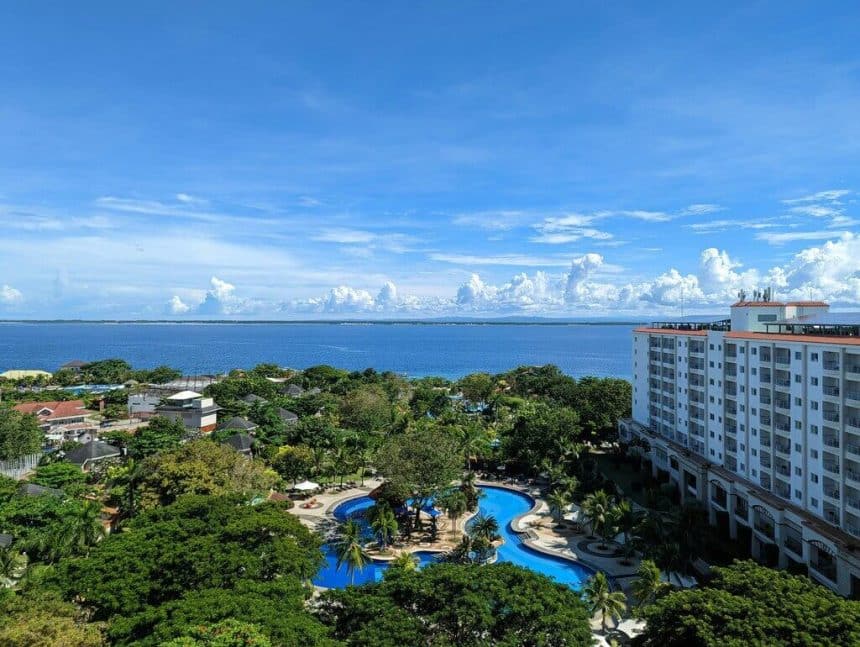The hotel industry in the Philippines continues to thrive with increasing tourist arrivals and a growing economy. Opening a hotel can be a profitable business opportunity with the potential for a significant return on investment. However, it also involves a lot of planning, preparation, and compliance with legal regulations. In this article, we will explore how to open a hotel establishment in the Philippines.
Can foreigners open a hotel establishment in the Philippines?
To open a hotel establishment in the Philippines, international investors can take advantage of the country’s policy that permits 100% foreign ownership in the hospitality sector. However, it is crucial to be conscious of the limitations imposed by the Foreign Investment Negative List (FINL), which identifies several sectors exclusive to Filipino ownership. It is also important to remember that foreign nationals cannot own land under Philippine real estate legislation. However, according to the Investor’s Lease Act, they can lease land for a maximum of 50 years, extendable for 25 years.
A minimum expenditure of $5 million is needed to move on with a tourist project that includes the construction of a hotel; at least 70% of this investment must be achieved within three years of the leasing contract’s beginning. A minimum of 60% of the shares in a corporation that plans to buy land for this purpose must be owned by a Filipino or a Philippine organization. However, foreigners can buy buildings to open a hotel establishment in the Philippines instead of land, as land is more tightly regulated.
Requirements to open a hotel establishment in the Philippines
The Department of Tourism requires specific requirements to open a hotel establishment in the Philippines. However, you must first register your company with the Business Register. After the registration for the hotel and getting your space ready, obtain accreditation from the Department of Tourism and the local governments.
You must submit several crucial documents to the department to apply for accreditation. These consist of:
- A filled-out application that must be sent in two copies.
- A certified copy of the bylaws and articles of association for your business.
- Details about the hotel’s directors, staff, and shareholders.
- A mayor’s permit.
The Department of Tourism will inspect your hotel after submitting your application. A certificate of accreditation will be given upon the completion of the inspection. When you open a hotel establishment in the Philippines, this certificate must be displayed so guests can easily see it.
Additional requirements
In addition to the above requirements, there are a few more documents needed to open a hotel establishment in the Philippines:
- Environmental Compliance Certificate (ECC): This requirement is issued by the Department of Environment and Natural Resources (DENR) and ensures that the hotel establishment complies with environmental laws and regulations, preventing environmental harm.
- Fire safety inspection certificates: This certificate verifies that the hotel establishment has met the necessary fire safety standards and protocols for the safety of its guests.
- Sanitary permits: This permit demonstrates that the hotel establishment adheres to proper sanitation and hygiene practices to ensure the health and well-being of its guests.
- BIR permit: This permit is issued by the Bureau of Internal Revenue (BIR) and authorizes the hotel establishment to operate as a business and comply with tax obligations.
- Zoning clearances: This verifies that the hotel establishment is in an area zoned for commercial activities, ensuring it is legally allowed to operate as a hotel.
- Building permits: This permit is granted by the local government and confirms the hotel establishment’s compliance with construction and building standards, ensuring the safety and integrity of the structure.

Open a hotel establishment in the Philippines in 7 steps
Opening a hotel can be profitable, especially in tourist-oriented countries like the Philippines. However, it requires careful planning and execution. Here are seven steps on how to open a hotel establishment in the Philippines:
Step 1: Establish a foreign company in the Philippines
Following regulations issued by the Securities and Exchange Commission (SEC) and the Department of Trade and Industry (DTI) is necessary when establishing a foreign-owned company in the Philippines. A minimum investment of $200,000 must be made with cash or convertible assets and deposited into a local bank account. Having a local representative to represent your company, handle legal and administrative matters, and ensure the smooth flow of transactions is also essential. When planning to open a hotel establishment in the Philippines, developing precise by-laws and regulations is essential to outline the business’s goal, structure, and operation.
Step 2: Develop a comprehensive business plan
A comprehensive business plan should focus on key areas like defining your unique identity, conducting a SWOT analysis, creating marketing strategies, setting timelines, establishing business missions and values, conducting financial analysis, outlining an operational strategy, defining your target clients, and planning for future growth. To succeed, building a strong team by hiring staff well in advance is crucial, as many new business owners struggle to delegate tasks during peak seasons.
Step 3: Comply with local laws and regulations
Owners must receive accreditation from the Department of Tourism and local governments and adhere to the Tourism Act. Along with fire safety inspection certificates, sanitary licenses, BIR permits, zoning clearances, and building permits, they must also secure an Environmental Compliance Certificate (ECC) from the Department of Environment and Natural Resources (DENR). To prevent penalties or legal problems, it is essential to ensure all required clearances and permits are acquired and appropriately displayed when opening commercial hotels in the Philippines.
Step 4: Secure funding
Obtaining capital is a common challenge when you open a hotel establishment in the Philippines. A minimum expenditure of $5 million is required to build the hotel. The entire cost is determined by location, construction, materials, maintenance, staffing, and monthly expenses. The two primary expenses to take into account are startup and ongoing costs. There are four popular options to secure funding: business/personal loans, assistance from family and friends, shared business ownership, and finding angel investors.
Step 5: Choose the right location
When choosing a location to invest in the hotel industry in the Philippines, consider the needs of your ideal customer. For a business hotel, a location in a business park may be ideal, while families looking for a beach getaway would prefer a location near the beach. The location will also impact your potential profits and costs. Finding a suitable location with low costs will increase profits, especially for luxury hotels. However, if you are opening a hotel for backpackers, lower profits mean you should aim for a location with lower costs to achieve a decent profit.
Step 6: Implement effective marketing strategies
Marketing helps attract real customers and gather positive reviews, establishing social proof of the property’s attractiveness. Therefore, having a strong online presence and appealing on all platforms is important when you open a hotel establishment in the Philippines. Marketing also allows businesses to target specific clients by positioning their advertising towards these groups. When starting a lodging establishment in the Philippines, exploring various income sources like meals, services, tours, and amenities is crucial in generating additional revenue. As businesses evolve and become more independent, thinking outside the box and capturing people’s attention with innovative marketing strategies is necessary.
Step 7: Go live and establish a strong reputation
Consider doing a hard and soft launch, depending on the size of your establishment, to handle any unexpected demand. Going live is like a trial period for the first six months, allowing you to gather guest feedback and experiences to determine what works and what doesn’t. Your reputation is crucial when you open a business hotel in the Philippines, so focus on social proofing through reviews. Building strong customer relationships and consistently providing value is also important for your business’s success.
What are the costs when opening a hotel establishment in the Philippines?
Understanding the potential costs involved in different hotels in the Philippines is important to ensure you can budget accordingly and make informed decisions. Here are the potential costs when you open a hotel establishment in the Philippines:
- Location: A hotel’s price can vary greatly depending on its location in the Philippines; beachfront accommodations and those on well-known tourist islands tend to cost more. The cost of land acquisition can range from ₱ 2,000 ($34) per square meter in remote areas, to ₱ 50,000 ($850) or even over ₱ 100,000 ($1,700) per square meter in highly developed tourism areas.
- Size and capacity: A resort’s total room count and overall capacity will determine its price; larger resorts typically come with higher prices than smaller properties.
- Design and architecture: Depending on the architectural style and level of complexity selected, construction prices may increase or decrease depending on the inclusion of custom or unusual features. For building the resort, prices vary from ₱ 15,000 ($255) to ₱ 25,000 ($425) per square meter for basic concrete structures and ₱ 3,500 ($59.50) to ₱ 50,000 ($850) per square meter for upscale structures.
- Quality and materials: High-quality options will result in greater costs. The choice of materials and finishes will majorly influence the final cost when you open a hotel establishment in the Philippines.
- Amenities and facilities: The pricing will vary depending on the kind and quantity of amenities like dining options, entertainment spaces, and swimming pools.
- Infrastructure: Building on undeveloped property could increase costs for constructing utilities, sewage systems, and roadways.
- Regulatory and permit expenses: Complying with local laws and regulations and obtaining licenses and permits may raise the final cost.
- Labor prices: Although labor is normally less expensive in the Philippines, labor prices can still be impacted by the knowledge and abilities needed for building. The average pay for a construction worker is ₱ 167 ($2.84) an hour.
- Inflation: Variations in inflation, the state of the economy, and market movements can affect construction prices over time.
- Consultation and professional fees: Adding project managers, engineers, and architects to help with the construction process raises the project’s budget. Their average salary ranges from ₱ 30,000 ($510) to ₱ 50,000 ($850) per month.
- Furnishings and equipment: The budget should include the expense of furnishing the hotel with beds, furniture, appliances, and cooking supplies.
- Contingency: A contingency budget is advised to cover unforeseen expenses or changes during construction.
Working with experienced professionals who can provide a detailed cost analysis based on project requirements is advised. These experts can also assist in navigating local regulations and permitting processes, which can vary across locations in the country. However, it is important to note that the cost of construction can vary significantly, starting from several million dollars. Accurate cost estimates can only be obtained through a thorough feasibility study and consulting experts when you open a hotel establishment in the Philippines.
What are the popular locations to open a hotel establishment in the Philippines?
When planning to open a business hotel in the Philippines, it is crucial to identify popular locations with high potential for success. The country has several hotspots attracting local and international tourists. Here are the popular locations to open a hotel establishment in the Philippines:
- Boracay: It is a world-renowned tourist destination with white sandy beaches, clear blue waters, and a vibrant nightlife, making it an ideal location to open a hotel that caters to tourists.
- Metro Manila: It is the country’s capital region and a metropolitan area home to local and international businesses, making it a hotspot for business and leisure travelers.
- Palawan: It has breathtaking landscapes and crystal-clear waters, making it an ideal location to open eco-friendly hotels.
- Cebu City: It is a hub of trade and commerce and a key gateway to other tourist destinations in the Visayas region, making it an ideal location for business hotels and mid-range accommodations catering to the needs of travelers in the city for work or transit.
- Baguio City: It is a popular tourist destination with a cool climate, beautiful landscapes, and various attractions, making it an ideal location to open a hotel establishment in the Philippines for individuals, families, and groups seeking a relaxing and refreshing vacation.
Get help with opening a hotel establishment in the Philippines
Our expert guidance makes opening a hotel establishment in the Philippines simpler. Our team is here to provide you with personalized advice, helping you open a hotel that fits your goals perfectly. We can help with establishing a foreign company, complying with local laws and regulations, applying for permits, finding or building the right property, and other real estate-related services.
Avoid the hassle and confusion. Open your hotel in the Philippines with confidence. For detailed assistance, just leave your name and email in the form below or email us at hello@ownpropertyabroad.com.
Frequently Asked Questions (FAQs)
Can a foreigner open a hotel in the Philippines?
Yes, a foreigner can open a hotel establishment in the Philippines with 100% ownership, but certain restrictions may be outlined in the Foreign Investment Negative List.
How much does it cost to open a hotel?
The cost to open a hotel establishment in the Philippines can vary greatly, but it can cost around ₱ 30 million ($510,000)
to build a hotel with 100 rooms. Accurate cost estimates can only be obtained through a thorough feasibility study and consulting experts in the field.
What are the requirements to register a hotel in the Philippines?
The registration for the hotel must meet specific requirements to open a hotel establishment in the Philippines and submit them to the Department of Tourism, including a filled-out application, certified copies of bylaws and articles of association, details about directors, staff, and shareholders, and a mayor’s permit.
What is the hospitality law in the Philippines?
The hospitality law in the Philippines encompasses regulations and statutes that govern various aspects of the hospitality industry, such as licensing, employment, health and safety, food hygiene, and consumer protection.
What is the hotel code in the Philippines?
The hotel code in the Philippines establishes the regulations for opening accommodation establishments. The different hotels in the Philippines include hotels, resorts, inns, pension houses, and motels, with hotels being the most common and popular choice among tourists, classified into various classes based on their amenities and services.




